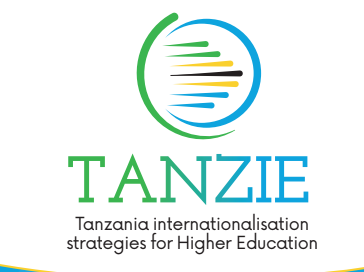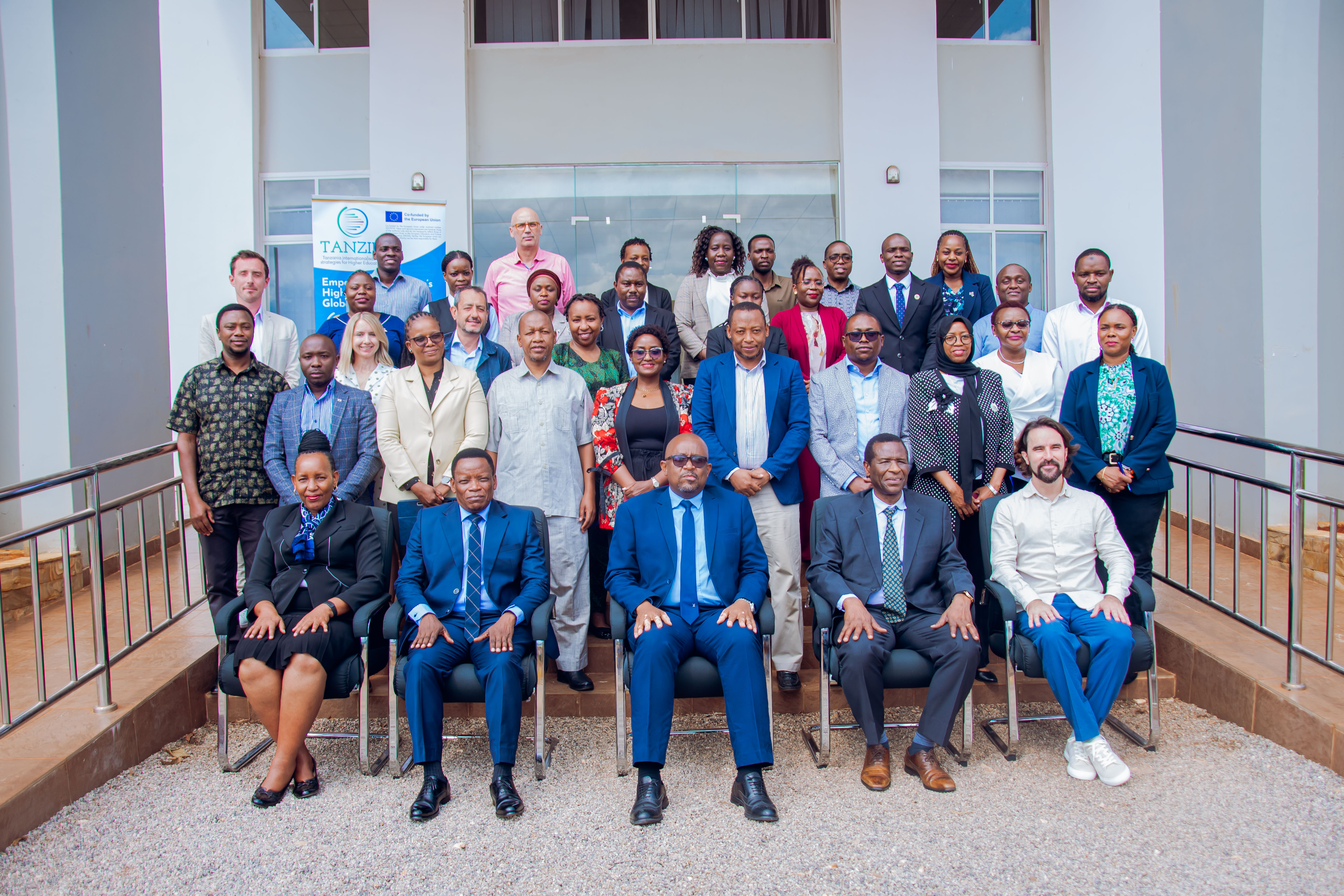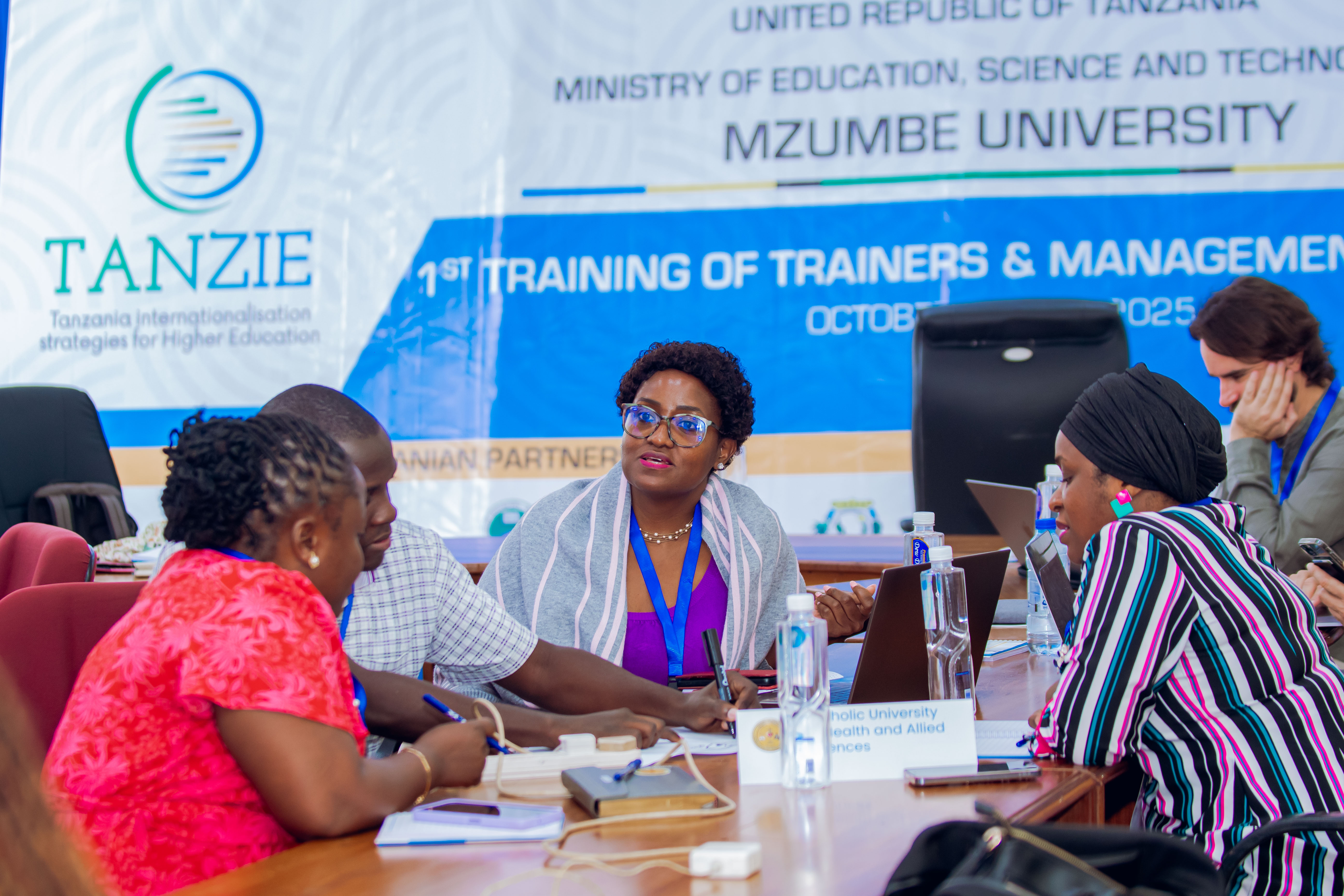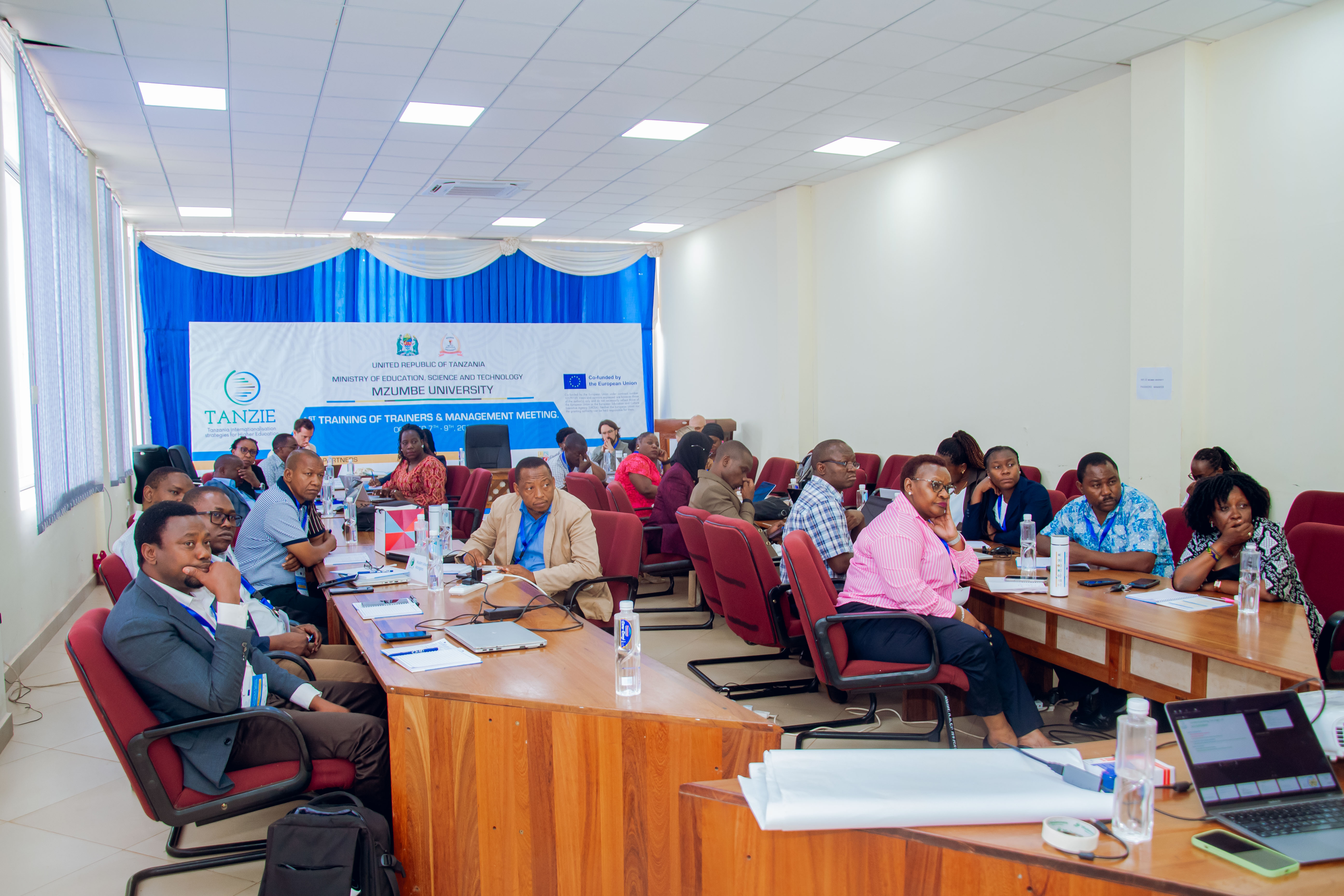The “Tanzania Internationalization Strategies for Higher Education (TANZIE)” aims to strengthen the internationalization efforts of selected Tanzanian Higher Education Institutions (HEIs) through institutional development that enhances the quality of teaching, research, and international collaboration.
TANZIE is a European Union funded Erasmus+ Capacity Building in Higher Education (CBHE) project championed by the Tanzania Commission for Universities (TCU) in collaboration with European partners: Alicante University – Spain and Saarland University – Germany.
CUHAS is a proud beneficiary of this project, along with Mzumbe University, Muslim University of Morogoro, and Nelson Mandela African Institution of Science and Technology.
Project Specific Objectives
- Enhance the institutional capacities of Tanzania HEIs to effectively plan, implement, and evaluate internationalization initiatives, including the development of strategies and international offices.
- Foster intercultural competencies among faculty, staff, and students contributing to a globalized learning environment.
TANZIE Implementation at CUHAS
- Establishment of an International Office to ensure sustainability of project outcomes and drive the internationalization agenda of CUHAS.
- Capacity building for CUHAS staff through targeted training programs aimed at improving management knowledge, research skills, and international engagement.
Project Highlight Videos
Project Partners

TANZIE in Action at CUHAS: Partners Deepen Capacity for Quality and Global Engagement
The First Training of Trainers Workshop under the Tanzania Internationalisation Strategies for Higher Education (TANZIE) Project (2025–2028) took place over the course of three days, 7th to 9th October 2025, at Mzumbe University in Morogoro. The three-day workshop brought together Tanzanian and European partners, namely the Tanzania Commission for Universities (TCU), Mzumbe University (MU), Nelson Mandela African Institution of Science and Technology (NM-AIST), Muslim University of Morogoro (MUM), and the Catholic University of Health and Allied Sciences (CUHAS), alongside European partners: University of Alicante (Spain), Saarland University (Germany), and the European Foundation for Management Development (EFMD). The event was officially opened by the Executive Secretary of TCU, Prof. Charles Kihampa, on 7th October 2025.
The objectives of the workshop included building capacity for internationalisation in higher education institutions, focusing on the fundamentals of internationalisation, mobility programmes, assessment of the quality of internationalisation, fundraising, and the development of strategic action plans.
The training marked a significant milestone in Tanzania’s journey toward strengthening institutional capacity for internationalisation in higher education. Funded through the Erasmus+ Programme, the TANZIE Project provides a dynamic platform for collaboration and knowledge exchange between Tanzanian and European universities committed to advancing quality, inclusion, and global engagement in higher education.
Throughout the workshop, participants engaged in a series of interactive sessions designed to build a core team of national trainers who will champion internationalisation practices within their institutions. The sessions also focused on strengthening quality assurance mechanisms and developing institutional strategic action plans aligned with the Sustainable Development Goals (SDGs), particularly Goal 4 (Quality Education) and Goal 17 (Partnerships for the Goals).
The closing ceremony concluded with participants presenting their draft institutional action plans, which will guide their respective universities in implementing effective internationalisation strategies and advancing the broader objectives of the TANZIE Project. The workshop’s success marks an important step toward fostering sustainable international partnerships and positioning Tanzanian universities within the global higher education landscape.
The Vice Chancellor of Mzumbe University, Prof. William Mwegoha, officiated the closure of the three-day workshop. In his remarks, Prof. Mwegoha commended the participants for their active engagement and dedication throughout the workshop. He emphasised the importance of collective action and sustained partnerships in transforming higher education institutions into globally competitive learning environments.
Prof. Mwegoha also highlighted that the outcomes of the workshop reaffirm Mzumbe University’s dedication to its long-standing motto, “Let us learn for the development of the people.” He reflected on Mzumbe University’s enduring collaboration with the University of Alicante, which began years ago through quality assurance initiatives and continues to flourish under the TANZIE framework.
He encouraged all Tanzanian partner institutions to maintain the project’s momentum by promoting sustained national collaboration and keeping doors open for future Erasmus+ and other international capacity-building initiatives. “Indeed, as the saying goes, ‘If you want to go fast, go alone; but if you want to go far, go together.’ Through TANZIE, we have chosen to go far together,” Prof. Mwegoha affirmed.
Ms. Thandiwe Peter, Prof. Mariam Mirambo, Ms. Magdalena Olelemakata, and Mr. Edgar Rwegoshora, the CUHAS members who attended the training, left the workshop highly motivated and well equipped to cooperate with other CUHAS stakeholders to establish a SMART internationalisation strategic action plan at the University.
TANZIE Project Kick-Off
CUHAS delegates joined other TANZIE partners in Spain for the official Kick-Off Meeting held on 6th–7th May 2025 at the University of Alicante, which is the coordinator of the project.
The meeting provided in-depth knowledge of the project’s framework, guidelines, and expected outcomes. Partners had the opportunity to network and lay the groundwork for long-term collaboration.
CUHAS also participated in the Study Visit from 8th–9th May 2025 at the University of Alicante and 12th–13th May 2025 at Saarland University, Germany, where internationalization strategies and best practices were shared.



